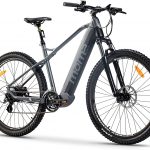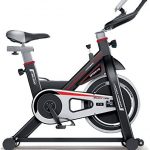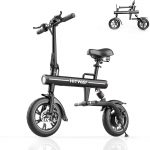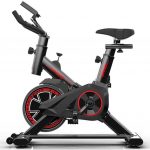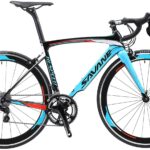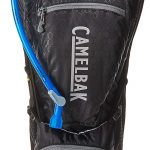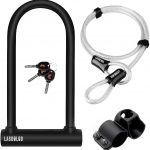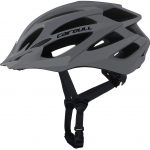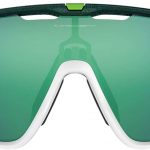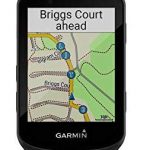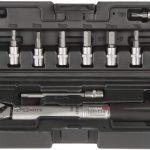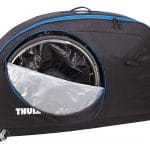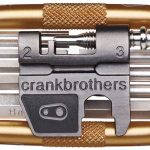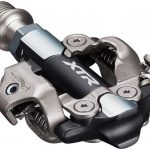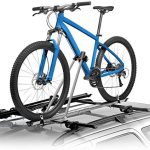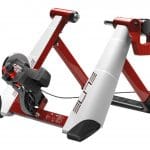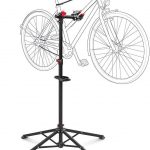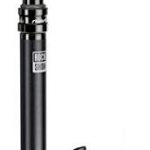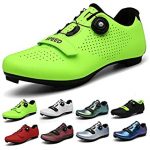Several years ago, while I was going up a mountain on friendly dirt, I came across a cyclist in road gear. At that moment, I thought "what is he doing around here with that bike?", Surprised to see what he thought was a road bike in the middle of the mountain. The truth was that it was not a road bike, but a gravel bike that looks a lot like it and shares some characteristics with them. Here we are going to explain what they are and why they can be a good option for you.
What is a gravel bike
| The best |
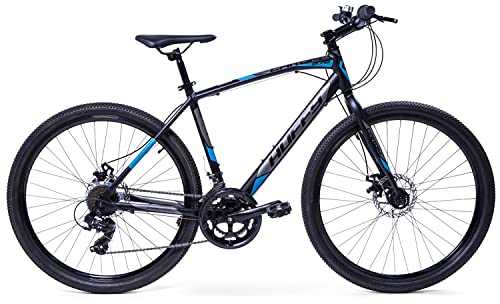
|
Huffy Carom Gravel 27.5... | See features | 13 reviews | View deals |
| Price quality |

|
Bicycle 28 N-VER Gravel... | See features | View deals | |
| Our favorite |

|
Head Picton 1.0... | See features | View deals | |

|
KABON Carbon Bicycle... | See features | 1 reviews | View deals | |

|
WOLF GV08 (48) | See features | View deals | ||

|
KABON Carbon Bicycle... | See features | View deals |
Gravel bikes are also known as off-road bikes, adventure bikes, or disc crossovers. They are a type of road bike with modifications that will allow us to comfortably ride on other terrain, such as asphalt in poor condition and with potholes or dirt, but without being a good option if what we want is to roll down the mountain.
This type of bike exists to satisfy a need, which is to ride comfortably on roads and to be able to get off them to go on more rugged roads, a bit of adventure, a name by which they are also known. They have some features like mountain bikes, like the disc brakes or tubeless tires and rough.
Unlike road bikes, which have been around for many decades, or mountain bikes, which began to be mass produced in the 80s, gravel bikes were born in the United States at the beginning of this century, and it did this in part to prevent road riders from having to get off their bikes every time they encountered poorer terrain or might get off the fine track of better asphalt.
Differences between a gravel bike and a cyclocross
All the cyclocross bikes are a close relative of the gravel ones. It is difficult to differentiate between them, but the point that will give us more information is the wheels: gravel bikes use wider tires than cyclocross, although both share a large part of the design. On the other hand, the wheelbase can be a bit longer on gravel bikes, but less than on a road bike where the wheels are even thinner.
Differences between a gravel bike and a road bike
The differences between a road bike and a gravel bike are greater than with respect to cyclocross. The difference in the thickness of the wheels and axle distance is greater, and the wheels have a pattern that we do not see on the road. But what gives the name to a gravel bike are components or adjustments such as that the position of the saddle is like in racing bikes, the longest distance on axles, to accommodate disc brakes and tires between 32mm and 45mm wide, and a comparison to the classic competition crosshead, a less aggressive seating position and a lower paddle for greater safety, efficiency and comfort over long distances .
Variations
Like mountain bikes, gravel bikes too They are with different designs and components. Depending on the terrain we are going to move through, there are some with a lower weight, with a sporty seating position, 1 × 11 transmission and hydraulic disc brakes. The components, such as the thickness of the wheels, fenders, number of chainrings, etc, will allow us to ride better on which routes, so, as in any other bike, before buying a gravel bike we have to look at its specifications.
Best gravel bike brands
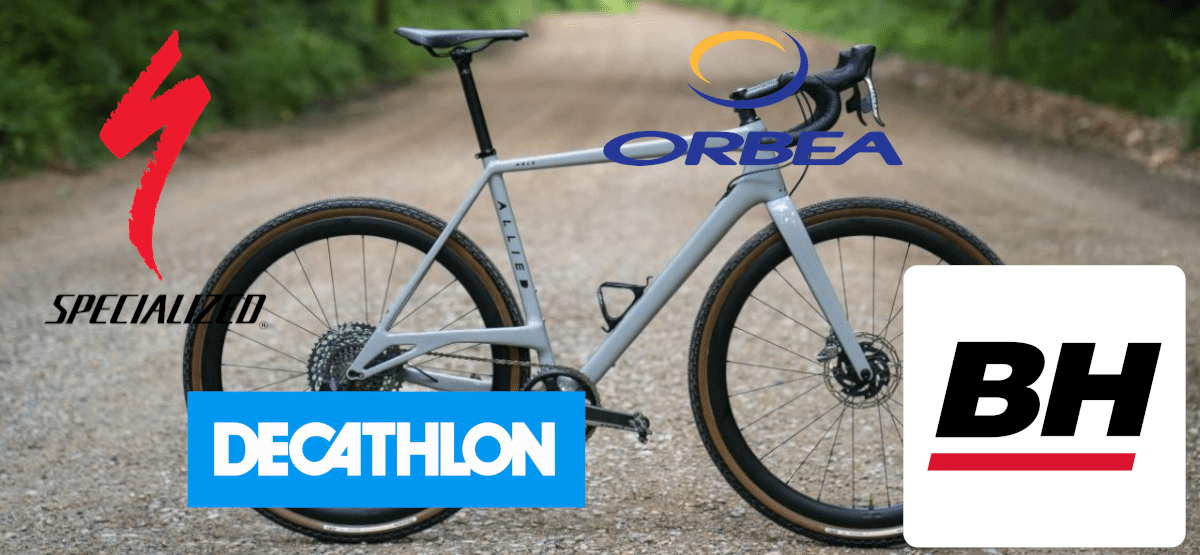
- Orbea: Orbea is a Basque company that manufactures and sells bicycles. It was founded in 1840, so we cannot say that it is precisely new, but that helps them to have experience and to be able to offer good products. It is a brand that has to be on any list of quality bikes, and I think the main reason is that its proposals are very good, the bulk of its catalog being bicycles that are among the cheapest and worst bikes and the most expensive and good. In other words, and although they also have advanced options, their bikes tend to be a bit below what other more popular brands offer, and this translates into a cut in your price that will not make us miss anything.
- Decathlon: Decathlon is a French chain of stores specialized in sporting goods. Among what it offers we find practically any article related to sports, and all at a good price. One of the reasons for the reduced prices is that much of what we find there are own brands, such as Rockrider, Hoptown, Riverside, Triban, Van Rysel or B'Twin for cycling. We will find gravel bicycles with the Triban and Van Rysel brands, the most economical being the Triban. But, beware, being not very expensive, they are not as cheap as the most basic models of the mountain Rockrider.
- Specialized: Specialized was created in 1974 in the United States. They have the honor of being the first to make a large-scale mountain bike, something they did when they were seven years old, in 1981. Shortly after, when they discovered that there was demand, they launched very aggressive marketing campaigns, which made them gain popularity and money, thereby improving both their brand and their products . Specialized also believe all kinds of bicycle accessoriesAmong which we have sportswear, parts, cycling shoes and some of the best non-motorized two-wheelers, among which we have gravel bikes.
- BH: BH is another centenary Spanish company, and it is also Basque. The initials come from "Beistegui Hermanos", and they were the first to manufacture mountain bikes in Europe. They were in charge of making the whole bike, except for the wheel covers, chains and headlights. Today they are a well-known and important brand in the cycling world, but, probably because of the marketing, it looks less than it deserves. The good news is that, as with Orbea, BH bike prices are usually lower.
Is it worth buying a gravel bike?
| The best |

|
Huffy Carom Gravel 27.5... | See features | 13 reviews | View deals |
| Price quality |

|
Bicycle 28 N-VER Gravel... | See features | View deals | |
| Our favorite |

|
Head Picton 1.0... | See features | View deals | |

|
KABON Carbon Bicycle... | See features | 1 reviews | View deals | |

|
WOLF GV08 (48) | See features | View deals | ||

|
KABON Carbon Bicycle... | See features | View deals |
A gravel bike is a hybrid, in part. It has been designed to be able to roll on almost any type of terrain, but it is not even close to being the best option if what we want is to move through the mountains with the most stony terrain. On the other hand, the wheels that they mount are thicker and with more tread than the road ones, so they are not the best option if we are always going to roll on the road; the wheels offer greater resistance. As for what comes closer, they are closer to road bikes than mountain bikes.
So, knowing the above, are they worth it? We will find the answer within ourselves, when we examine what we want and where we are going to move. If we are going to ride on asphalt, a road bike is better because they are designed to move on the road offering the least resistance. If we are going to ride in the mountains, especially on the most complicated terrain, we have to buy a mountain bike, maybe with full suspension included. But if what we want is to move along routes with a large part of the terrain with many potholes, asphalt in poor condition and somewhat bumpy, then it is worth it. The road performance will be less than on a road bike, but we'll make it up in the rest of the land.
A second hand gravel bike is a great option
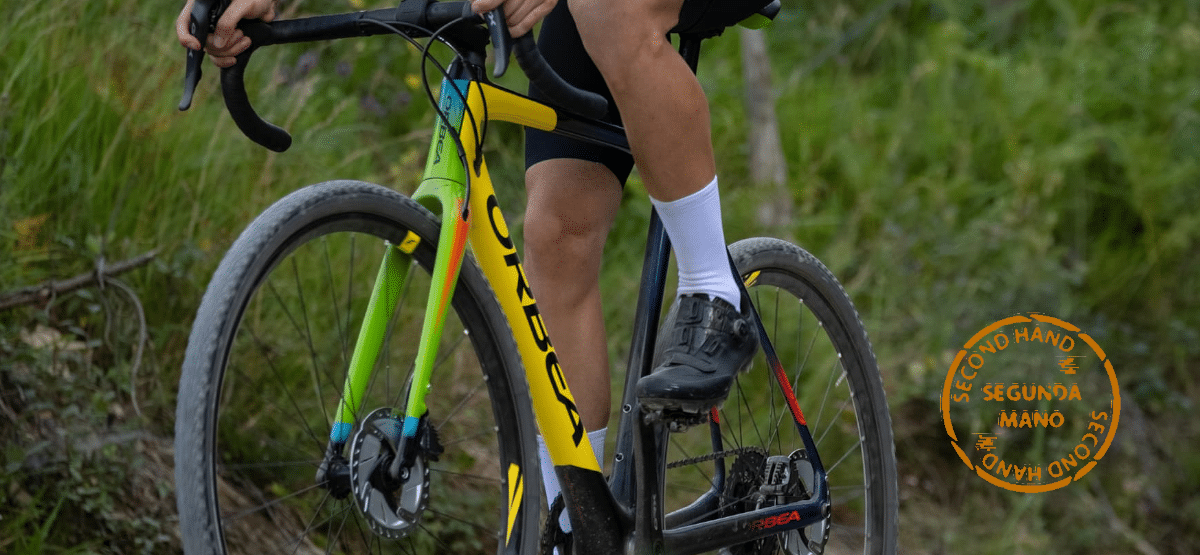
When we go to buy a road bike, we have everything or almost everything clear. When we go to buy a mountain bike, the same. Things change a bit when what we are going to buy is a bike like gravel. It is assumed that what we want is a bike that we will use to go a lot on asphalt, but that has to be able to roll on other terrain. The question here is that not all bikes are made for all users And, luckily, some buy a bike of this type thinking that it is the best for them and later they realize that they need something more off-road, or quite the opposite, a bike with thinner and less heavy wheels because they are going to rolling all the time on the road. And if not, what little land they are going to touch can be done by walking.
What one does not want can be a treasure for another. These users who bought a gravel bike and then decided to buy one for a specific sport have released the bike, and that usually translates into its price drops a lot. Therefore, if it is the type of bike we want, we will find very good offers in services such as Wallapop, eBay or secondhand.es. And if we don't hit a lot of uneven ground later, as we haven't paid as much, the (pocket) pain is less.



